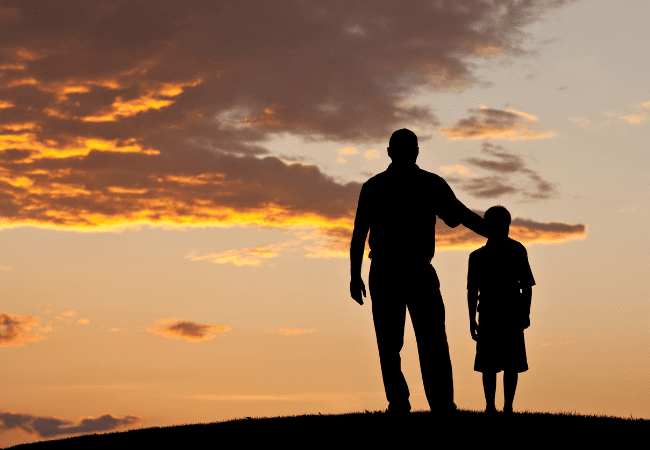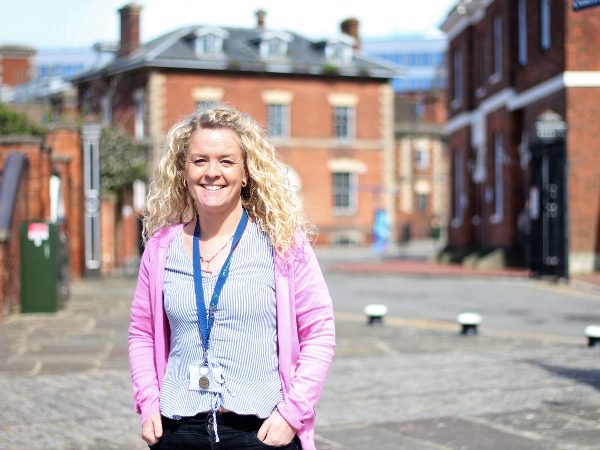
Lauren Cairns Mental Health Youth Worker at The Link talks to us about the ‘Five Ways to Wellbeing’ and how we can try to achieve them.
4 November 2019
“Every single person experiences mental health. Whether we’re feeling good or not so good, we all have it. In the UK, 1 in 4 people will experience at least one diagnosable mental health condition throughout their lifetime. Therefore, it’s super important that we recognise when people are struggling and offer all of the support that we can, to improve their wellbeing.
This is why in The Link, YG’s drop in centre, have been looking at the ‘Five ways to Wellbeing.’
“Wellbeing is made up of two main elements: feeling good and functioning well. Feelings of happiness, contentment, enjoyment, curiosity and engagement are characteristics of someone who is positive about their life.
“Between July 2006 and October 2008 the UK government’s futures think-tank, Foresight, commissioned over 400 experts in psychology, psychiatry, neuroscience, education, and economics from across the world to review current knowledge on mental health and wellbeing. What became clear is that some of our happiness is determined by:
- Our circumstances (where we are)
- Our personal resources (who we are)
- The activities where we focus our energy (what we do).
“Towards the end of this process, Foresight commissioned New Economics Foundation to look at the evidence and identify the daily activities that support people to live their lives in a happier way. This resulted in the ‘Five ways to Wellbeing” – Connect, Be Active, Take Notice, Keep Learning and Give.
“Here in The Link we see many different young people whose wellbeing is suffering and so is their mental health. We see a lot of young people struggling with similar issues like; money worries, preparing for interviews or searching for jobs, difficult relationships, struggling at school or problems with their housing. All these worries and frustrations can get on top of us and might leave us feeling angry, upset, anxious and often struggling to cope which can lead to depression, anxiety, and sometimes self-harm, eating disorders or dependency on drug and alcohol.
“Evidence suggests that a small improvement in wellbeing can help to decrease some mental health problems and also help people to flourish. Let’s look at each of the five areas and consider how they contribute to our wellbeing and some of the practical steps we can take in our lives to achieve them;
“Connect: Connect with the people around you. With family, friends, colleagues and neighbours. At home, work, school or in your local community. Building these connections will support and enrich you every day.
“Sometimes, when our mental health isn’t great, our social world becomes really small. People can feel overwhelmed and shy away from situations that may make them feel worse. But isolation can exacerbate many of our problems. To help prevent this, we set up ‘Social Links’. This is a space for young people, to chat, make friends and relax. Social Links runs every other Wednesday from 4-6pm at The Link.
“Be active: Go for a walk or run. Step outside. Cycle. Play a game. Garden. Dance. Exercising makes you feel good. Discover a physical activity that you enjoy and that suits your level of mobility and fitness. To help you get active, we’re starting some sessions called Active Links. These sessions will be with a qualified personal trainer and will run on Thursdays between 1-2pm. Speak to anyone in The Link for more information.
“Take Notice: Be curious. Catch sight of the beautiful. Remark on the unusual. Notice the changing seasons. Savour the moment, whether you are walking to work, eating lunch or talking to friends. Be aware of the world around you and what you are feeling.
“Keep Learning: Try something new. Rediscover an old interest. Sign up for a course. Take on a different responsibility at work. Fix a bike. Learn to play an instrument or how to cook your favourite food. Learning new things will make you more confident as well as being fun. At The Link, we’re running a series of wellbeing workshops, which will help you learn some key skills, such as resilience, coping mechanisms and interview skills. Drop into The Link for more information.
“Give: Do something nice for a friend, or a stranger. Thank someone. Smile. Volunteer your time. Join a community group. Look out, as well as in. Seeing yourself, and your happiness, linked to the wider community can be incredibly rewarding and creates connections with the people around you.
“Linked Up – The impact of mental health is huge but if we take lots of small steps we can work towards improving it. Sometimes it is not easy to do this alone. Together with our partner charity, Infobuzz, YG have set up a project called ‘Linked Up.’ The project provides 1-2-1 counselling and practical support. This means that Linked Up helps people to deal with both the emotional and practical impacts of mental health. When you’re feeling low, even the smallest tasks can seem really overwhelming. Whether you need help building confidence, trying out a new activity, setting up a new budget or even booking a GP or job centre appointment, we’re there to support you. We’ll help you set small goals and start working towards these.
“What makes Linked Up so great, is that the support is tailored to each young person. By talking to the mental health youth workers at the Link, we can begin to get to know you, your situation and how you are feeling and build a plan of support that you feel comfortable with.
“if you are a young person or you know someone ages 16-25 suffering with their mental health, pop in to The Link open Monday – Friday 11-4 or call 01452 501008 to find out how you can get involved in the project.”
You may also like...
Redesigning Graphic House: Creating the safe spaces young people deserve

Meet Jamie – Learning, growing, and giving back through Youth Work

From Probable Mental Illness to Wellness

Young Gloucestershire’s ED and I journey

